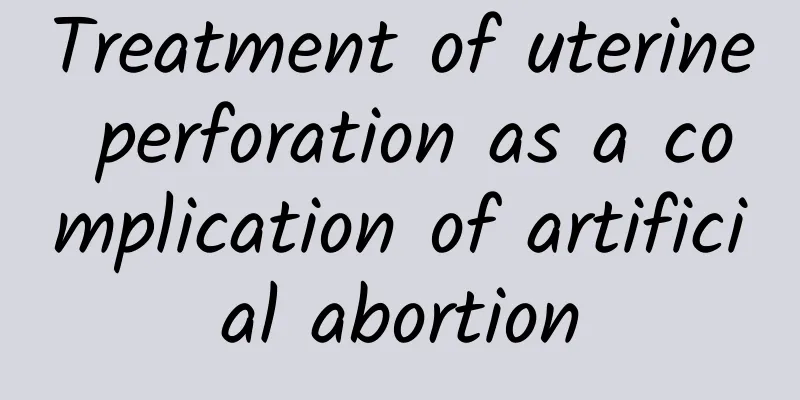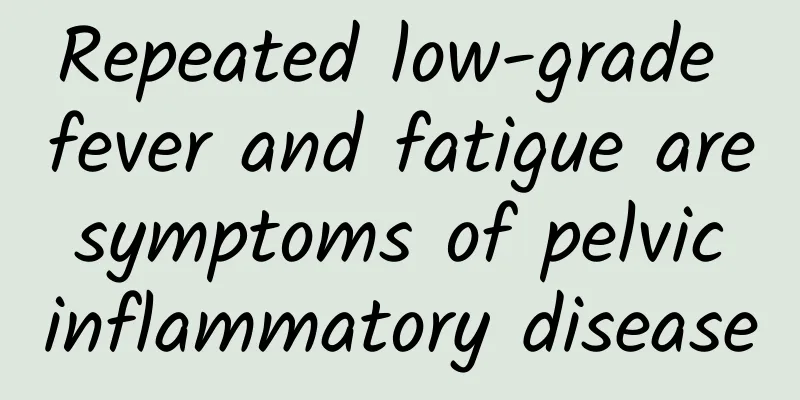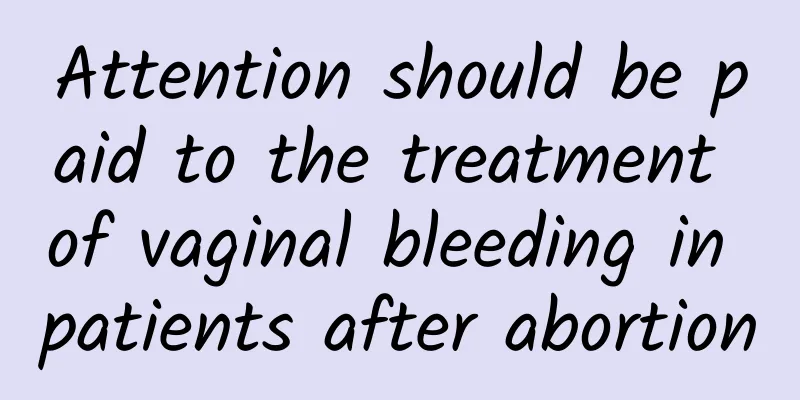Treatment of uterine perforation as a complication of artificial abortion

|
Artificial abortion refers to the termination of pregnancy by surgery within 3 months of pregnancy. During the operation, various complications may occur, such as artificial abortion syndrome, uterine perforation, and postoperative bleeding. Among them, the manifestations and treatments of uterine perforation are as follows: When the doctor uses instruments to perform artificial abortion, if there is a sudden bottomless feeling when the instrument enters the uterine cavity, or its depth obviously exceeds the size of the uterus during examination, it often indicates uterine perforation, which is closely related to the operator's operating technique and the condition of the uterus itself (such as pregnant uterus during lactation, pregnancy again after cesarean section scar uterus, etc.). After uterine perforation occurs, the operator should immediately stop the operation and take appropriate treatment measures, such as giving oxytocin and antibiotics, closely observing the patient's vital signs (including heart rate, pulse, respiration, pupils and corneal reflex, etc.), and observing whether the patient has vaginal bleeding, abdominal pain and signs of intra-abdominal bleeding. If the patient's condition is stable and the operation has been completed, conservative treatment can be performed; if the embryonic tissue has not been completely aspirated, an experienced physician can be replaced to avoid the site of uterine perforation, or the operation can be continued under B-ultrasound guidance or laparoscopy; if the patient has uterine perforation before the suction operation, wait for 1 week before clearing the contents of the uterine cavity; if the patient has increased bleeding or suspected organ damage, laparotomy should be performed in time to identify the site of injury and actively treat it before repairing the perforation. |
<<: Treatment of ovarian cysts with Xiaonang Mixture
>>: Patients with chronic pelvic inflammatory disease should receive symptomatic dietary therapy
Recommend
What should you pay attention to after an abortion?
What should you pay attention to after an abortio...
What are the dietary taboos for patients with pelvic peritonitis?
Pelvic peritonitis is a relatively serious surgic...
What will happen if an ovarian cyst is serious? How to prevent ovarian cysts
What happens if ovarian cysts are severe? How to ...
What are the typical symptoms of cervical erosion?
Cervical erosion is a common gynecological diseas...
This way you won’t get fat! Supermodel Miranda reveals 4 beauty tips
Miranda Kerr is a famous model whose lifestyle is...
What medicine is effective for women with chronic cervicitis? Two types of medicine are effective in treating chronic cervicitis
Patients with chronic cervicitis need to take loc...
How many days does it take for a Bartholin's gland cyst to subside?
The time it takes for a Bartholin's cyst to g...
What to eat to nourish your body after miscarriage? Doctors recommend these 5 foods
After a miscarriage, because of the loss of some ...
Vulvar infection and inflammatory irritation can cause vulvar leukoplakia
Vulvar leukoplakia refers to localized or diffuse...
What are the symptoms of cervicitis
Cervicitis is a common gynecological disease with...
Advantages of microecological therapy in treating vaginitis
There are many ways to treat vaginitis. Microecol...
Treatment of Candida glabrata vaginitis
Treatment of Candida albicans vaginitis: Candida ...
Two reasons for female vulvar leukoplakia
The incidence of vulvar leukoplakia is very high,...
Introduce some knowledge about pregnancy symptoms
Many girls, after getting married, are not aware ...
What is the reason why menstruation is always delayed?
What is the reason why menstruation is always del...









